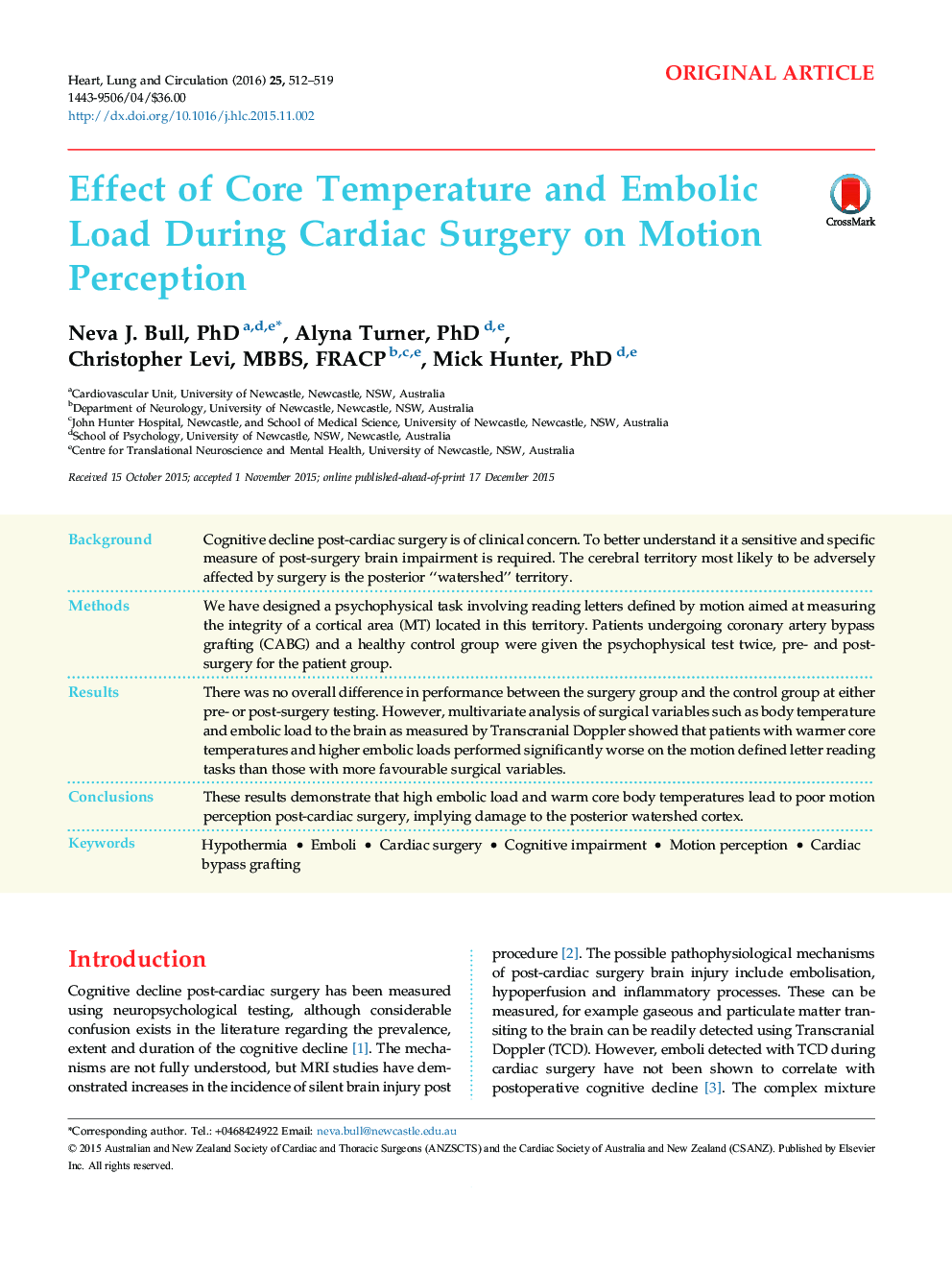| Article ID | Journal | Published Year | Pages | File Type |
|---|---|---|---|---|
| 2917048 | Heart, Lung and Circulation | 2016 | 8 Pages |
BackgroundCognitive decline post-cardiac surgery is of clinical concern. To better understand it a sensitive and specific measure of post-surgery brain impairment is required. The cerebral territory most likely to be adversely affected by surgery is the posterior “watershed” territory.MethodsWe have designed a psychophysical task involving reading letters defined by motion aimed at measuring the integrity of a cortical area (MT) located in this territory. Patients undergoing coronary artery bypass grafting (CABG) and a healthy control group were given the psychophysical test twice, pre- and post-surgery for the patient group.ResultsThere was no overall difference in performance between the surgery group and the control group at either pre- or post-surgery testing. However, multivariate analysis of surgical variables such as body temperature and embolic load to the brain as measured by Transcranial Doppler showed that patients with warmer core temperatures and higher embolic loads performed significantly worse on the motion defined letter reading tasks than those with more favourable surgical variables.ConclusionsThese results demonstrate that high embolic load and warm core body temperatures lead to poor motion perception post-cardiac surgery, implying damage to the posterior watershed cortex.
